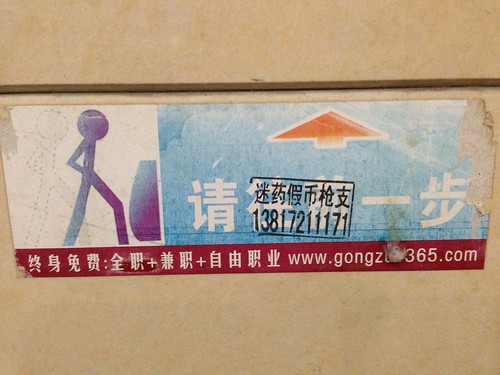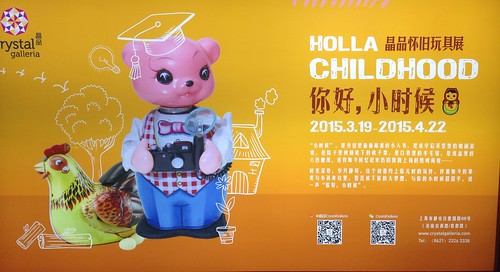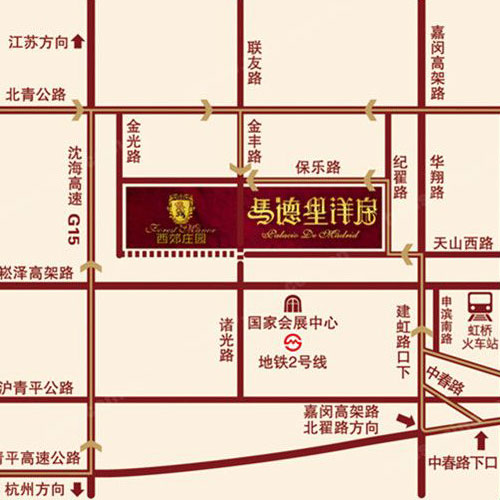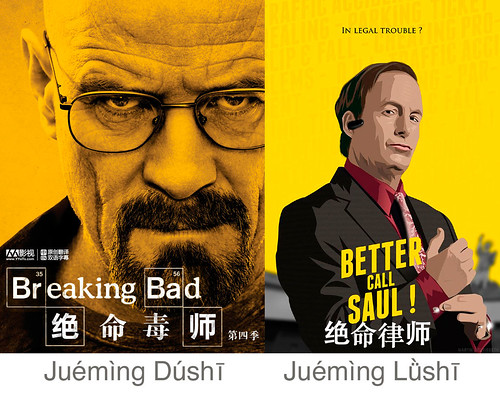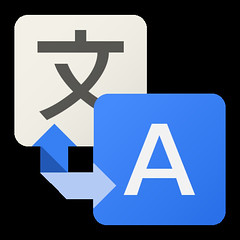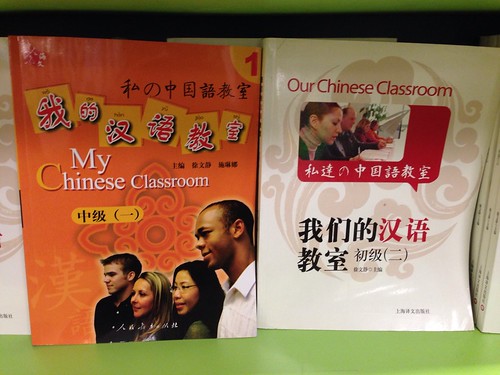07
May 2015Roofies, Counterfeit Money, and Firearms
I’m used to seeing ads for fake IDs everywhere in China (sometimes as a stamp, sometimes just written in permanent black marker, nothing more than the word 办证 and a phone number), but I was surprised by this ad. I encountered it in a public restroom near Mogan Shan (莫干山):
The ad is the black stamp on the “step closer to the urinal” PSA, and it’s selling three things:
– 迷药 (something like roofies)
– 假币 (counterfeit money)
– 枪支 (firearms)
All of these, obviously, are highly illegal in China. I’m not sure how such a brazen method of advertising illegal goods can be pulled off (even outside the big city).
01
May 2015May Day Word Play
Today is May 1st, China’s International Workers’ Day holiday. Yesterday I saw this amusing little joke, posted by a former student, “Monica.” The humor is based on transliteration. First the joke, then I’ll follow up with a translation and explanation.
> 小时侯上学,把“English”读为
> “应给利息”的同学当了银行行长,
> 读为“阴沟里洗”的成了小菜贩子,
> 读为“因果联系”的成了哲学家,
> 读为“硬改历史”的成了政治家,
> 读为“英国里去”的成了海外华侨。
> 而我,不小心读成了“应该累死”,
> 结果成了一名光荣的劳动者……工作辛苦了,
> 提前祝大家五一节快乐!
Translation:
> When I was in primary school, the kids that pronounced the word “English”
> as “yīng gěi lìxī” became bankers,
> as “yīngōu lǐ xǐ” became vegetable vendors,
> as “yīn-guǒ liánxì” became philosophers,
> as “yìng gǎi lìshǐ” became politicians,
> as “Yīngguó lǐ qù” became overseas Chinese.
> As for me, I accidentally pronounced it “yīnggāi lèisǐ,”
> and as a result became a glorious laborer….
> You’ve all been working hard; I wish you an early May 1st Labor Day!
For this to make sense, you have to read each individual character that makes up each transliteration (phonetic approximations of the word “English”). Here’s a quick gloss:

Photo by IamNotUnique
– 应给利息: “should, give, interest”
– 阴沟里洗: “sewer, in, wash”
– 因果联系: “cause-effect, connection”
– 硬改历史: “hard/insist on, change, history”
– 英国里去: “England, in, go”
– 应该累死: “should, dead-tired”
(The “washing in the sewer” one refers to washing vegetables in less-than-clean water, rather than bathing, I think.)
Chinese people with limited English ability really do pronounce the word “English” as something like “ying-ge-li-xi,” which makes the joke all the better.
A note to learners: please remember that pinyin “x” should not be pronounced like English “sh.”
22
Apr 2015Holla as “Ni Hao”
I was amused by this translation of 你好 (“hello”) as “holla“:
I’ve been annoyed in the past by how 你好 is almost exclusively translated as “hello” when “hi” or “hey” would serve better in many contexts. In fact, long ago, when I taught English in Hangzhou, I forced my students to stop using “hello” all the time and start using “hi” and “hey” to be more natural in informal situations.
Still, “holla??” Seems like a translator was bored and trying to amuse himself.
Although this does raise another interesting question: how would one most faithfully translate “holla” into Chinese (dialect allowed)?
16
Apr 2015Chinese Gothic
There are tons of gated communities on the outskirts of Shanghai, each offering its own brand of opulence, and frequently with a western aesthetic. One example of this is 马德里洋房, or “Madrid Western Houses.” I can barely make out the English name in the image below, but I think maybe it reads “Palacio de Madrid”? Considering that most Chinese don’t read Spanish, this name is pushing for new heights in pretentiousness.
Rather than apartments, or 公寓 (where most Chinese live), this community offers stand-alone houses with small yards. These are generally referred to as 别墅 in Chinese (a word frequently translated as “villa” in English, but which is often used in Chinese marketing speak to make clear that these are not apartments).
What’s interesting about 马德里洋房 is the Chinese font it uses in its name, which is based on a medieval gothic style:
Sorry the image quality isn’t too good; this is the best I could dig up. Has anyone out there seen any other medieval gothic Chinese?
14
Apr 2015What Linguistic Diversity Feels Like
We often think of “linguistic diversity” referring to the existence of minority languages in an area. But it can also refer to the varying dialects of a region, which in China would include topolects, AKA 方言. When you throw various forms of language together in a single geographical area, they don’t stay distinct; they bleed into each other in interesting ways.
Here are a few anecdotes about that, and what we’re potentially losing when a large region’s language becomes one shade of plain vanilla.
Beijing to Hangzhou
I learned the basics of Mandarin in Hangzhou, where not so many people speak “standard Chinese.” I had to constantly check dictionaries to make sure I was learning the proper pronunciation of new words, because the pinyin sounds “ch/sh/zh” were always being pronounced as “c/s/z”, as southern Chinese tend to do. This was annoying it times, but it didn’t bother me too much, because it was simply the way things were.
Fast forward a few years. I witnessed students of Mandarin visiting Hangzhou from Beijing, absolutely livid because no one in Hangzhou spoke “proper Chinese,” and they couldn’t understand anything. They were used to extremely standard Mandarin, with a bit of Beijing dialect for flavor, but not this.
The whole thing was amusing to me, because not only could I easily understand what they could not, but when I visited Beijing, the locals were so easy to understand that it was surreal, as if every word that came out of every Beijinger’s mouth was a recording from a textbook dialog.
(Note: Americans, when visiting the UK for the first time, may have a similar experience to these students of Chinese in Beijing.)
Fading Tolerance for the Nonstandard
When we had our second baby, we hired a yuesao (post-natal caregiver, 月嫂). We call her Zhang Ayi. Zhang Ayi is great, but she’s from Jiangsu, and she has an accent that can be hard for me to understand.
At first I was thinking, “my Chinese must be worse than I thought,” because after all these years in China, a little accent shouldn’t throw me off too much. It made me feel better, then, to know that my wife (a Shanghai native) also has trouble understanding Zhang Ayi, and fairly often. Zhang Ayi manages to speak in a way that sounds standard, but you just can’t understand it. (As a non-native speaker, it really makes me doubt my listening comprehension!) It’s a different flavor of “nonstandard” than I’m used to, but it affects even a native speaker’s comprehension.
The interesting thing is that my wife’s parents (one from Shanghai, one from Hubei) have no trouble understanding anything Zhang Ayi says. Their generation grew up in a China with wildly heterogenous Mandarin spoken (remember Mao’s Mandarin?), and they just have a much, much higher tolerance for strong accents. This tolerance is fading fast in the younger generations.
Mute Shanghainese
It’s been widely reported that Shanghainese (上海话) is dying. A lot of Shanghainese parents are taking great pains to use Shanghainese with their children to make sure that this cultural heritage does not die out.
The problem is that a dialect/topolect is not merely a family issue; it’s a community issue. And what’s happening with these families is that their children do indeed comprehend Shanghainese, and can usually say a few words and phrases, but they essentially do not speak it. Only standard Chinese is allowed in schools, and that makes it “weird” for Shanghainese kids to talk to each other in anything other than standard Chinese. Shanghainese does not feel necessary or useful to the children.
What’s even worse, even if a Shanghainese parent goes the extra mile and insists that only Shanghainese is spoken in the home, raising her own child to be 100% fluent in Shanghainese, her child will likely be the member of a society where no one else of his generation actually speaks Shanghainese. And one fluent speaker can’t keep Shanghainese going.
02
Apr 2015The Chinese Pronunciation Wiki
For years, I’ve had a few sections on Sinosplice for pronunciation:
– Pronunciation of Mandarin Chinese: Setting the Record Straight
– The Process of Learning Tones
– Mandarin Chinese Tone Pair Drills
(Notably absent: tone change rules)
I’ve also blogged about pronunciation many times, but I didn’t feel like a blog is the best way to organize all this information, and these days I’m putting most of my time into growing AllSet Learning rather than reorganizing Sinosplice.
The Chinese Grammar Wiki has turned out to be a hugely successful experiment, and in about three years has become the internet’s favorite reference for Chinese grammar issues online. Our work is by no means finished there; the Chinese Grammar Wiki continues to grow.
But it’s now time to bring a bunch of scattered information together in the same way we did for grammar, but this time for pronunciation. We’ve started the Chinese Pronunciation Wiki, and it’s still in its early days, but the foundation is strong.
One of the key concepts behind the site which I believe is missing in many current courses and resources with regards to pronunciation is a clear idea of what to focus on, when. Remember: mastery of Chinese pronunciation is a long-term endeavor. Take it step by step.
We’re doing a soft launch of the site this week, and will do a more public launch next week. I’d love to get some early feedback.
A few notes on what we’ve got so far:
– We aim to keep beginner explanations simple, without resorting to linguistic jargon. Full linguistic description for those who want it is part of the longer-term plan.
– Many pages still need to be fleshed out, but for now, the pinyin chart, pinyin quick start guide, tone change rules, and erhua pages are already quite useful
– I’m interested to hear what higher-level learners and native speakers think about our page on Chinese accents (which can be quite a hurdle for learners)
– Images/illustrations are coming
– I have tons of ideas for higher-level pronunciation topics, but we have to cover the basics first
Thank you for your support of the Chinese Pronunciation Wiki, everybody! There will be more news and an official announcement next week.
24
Mar 2015I’m in an Abusive Relationship with Shanghai
Sometimes I feel like I’m in an abusive relationship with Shanghai.
Sure, I love Shanghai, but there are times I wonder if we should be together. Like the times in the winter when I walk outside and I can smell the air (it smells kind of like gunpowder). Or this past winter, when I got a cold that lasted for two months (my worst colds usually last about a week), and my whole family got sick repeatedly (still not better yet).
But then the weather gets nice, and the sky turns blue again, and it’s easy to forget those offenses, or at least put them out of my mind. I remember what made me love Shanghai in the first place, and almost start to believe that cities can change. At least I can be happy now… spring is here. Best to just enjoy it while I can.
17
Mar 2015Being Bilingual Changes Children’s Perception
I recently read a fascinating article called How bilingualism affects children’s beliefs, which details some findings from researchers in developmental psychology at Concordia University in Montreal.
The idea behind the experiment is to see what qualities kids see as innate. Is the language that a person speaks innate, or is it learned? Is the sound that an animal makes innate, or is it learned?
The implications could be quite profound. I quote the final four paragraphs here:
> “Both monolinguals and second language learners showed some errors in their thinking, but each group made different kinds of mistakes. Monolinguals were more likely to think that everything is innate, while bilinguals were more likely to think that everything is learned,” says Byers-Heinlein.
> “Children’s systematic errors are really interesting to psychologists, because they help us understand the process of development. Our results provide a striking demonstration that everyday experience in one domain — language learning — can alter children’s beliefs about a wide range of domains, reducing children’s essentialist biases.”
> The study has important social implications because adults who hold stronger essentialist beliefs are more likely to endorse stereotypes and prejudiced attitudes.
> “Our finding that bilingualism reduces essentialist beliefs raises the possibility that early second language education could be used to promote the acceptance of human social and physical diversity,” says Byers-Heinlein.
I’ve often wondered what would happen to racism in the world if every child born was interracial. The next best thing? If every child is multilingual.
I hope more research is done in this field.
11
Mar 2015The long quest for a fuller explanation of 和 (he)
When I first started learning Chinese in 1998, I learned the word 和 (hé) as a way to express “and.” However, it was an “and” with limitations; it was not to be used to connect sentences or clauses. For example, none of these sentences could be expressed with 和:
– Today we’re going to learn how to hold the pen and learn the stroke order for one character.
– You get a new job, and and I’ll stop living in the treehouse.
– He ran into the street and got hit by a garbage truck.
So the way I learned 和 was as a way of connecting nouns and noun phrases. Not verbs. Different from English, but not too tough, right?
The only problem was that after moving to China in 2000, from time to time I would encounter examples of what were clearly verbs being linked by 和. It didn’t happen often, but often enough to bug me. Worst yet, although some Chinese teachers had told me to only use 和 to connect nouns, others told me 和 could be used to connect verbs too. This conflicting advice was frustrating, and in the end I decided to ignore the non-noun uses of 和 because you don’t need to use 和 for verbs; there are other ways to link verbs.
Fast forward to this year.
The Chinese Grammar Wiki has a beginner-level article on 和 that until very recently stated that 和 is used to connect nouns and noun phrases but not verbs. Then someone on Reddit politely called us out on it with a very good counter-example.
Now that I have a team of Chinese teachers at AllSet Learning, I can have one of my lead teachers properly research the issue. She didn’t find much, and did extensive examination of 和 in use in various corpora. Then we also discussed the issue with a group at a recent teacher training session.
The result is that we now have a new page on advanced uses of 和. It’s still good to start with the basic uses, but more advanced learners can jump into the other messy details.
The bad news is that the issue of when you can and can’t use 和 with verbs is still quite murky. The wiki page needs more examples and more references. (If anyone knows of any research papers or books that touch on this issue, please share! See the Chinese Grammar Wiki page for more details.)
But the good news is that it’s really great to see the Chinese Grammar Wiki expanding in this way, through feedback and the dedication of AllSet Learning’s academic team. It’s not every day you get to see a free resource like this blossom, and it’s even more gratifying to be part of it.
03
Mar 2015Sad Newspaper Recycling Man
Way back in 2008 or so I used to ride the subway regularly to get to “the factory,” the original ChinesePod office. Every day as I got off the subway and exited the station, I’d see these “newspaper recycling people.” They were typically elderly, and they stood by the subway turnstiles, near the garbage cans, busily collecting the used newspapers of all the passengers that were already finished consuming their daily paper-based commute reading. The “newspaper recycling people” accumulated quite a stack of papers every morning.
I don’t ride the subway as much these days, but I noticed recently that these “newspaper recycling people” are still there, but they’re a lot less busy than before. They collect far fewer newspapers these days. I snapped a photo of one, tucking his meager bounty into his bag:
Who needs a newspaper when you have the (censored) sum of the world’s knowledge and entertainment in the palm of your hand? Hopefully these enterprising older people can find a new way to make a few extra kuai.
27
Feb 2015“Correction Brother” is Hilarious
Over the CNY holiday a video of a Shandong guy trying to make a phone call with his in-vehicle voice dial went viral, and it is hilarious:
The guy has an accent, so his tones are a little off, but you can definitely make out the number he’s trying to dial with the help of the subtitles.
The part that reads “X死,” while not polite, is actually not obscene; it’s a Shandong slang term “xie 死” which means the same as “打死” (beat someone to death).
Anyway, this guy has been nicknamed 纠正哥, “Correction Brother,” because he keeps trying to “correct” the system’s misunderstanding of his voice commands.
After the video went viral, he was later interviewed by a reporter:
New information learned from this video:
1. The band-aid on 纠正哥‘s head is because his friend (owner of the number that keeps getting repeated in the first video) cracked him over the head with his phone when he started getting non-stop phone calls after the original video went viral.
2. The friend gave the number and the phone to 纠正哥, which is why he has it, and you can see it getting non-stop calls at the end of the interview video.
3. 纠正哥 got mad because the interviewer guessed he was 45 years old, but he’s only 33.
Thanks to John Guise for bringing this video to my attention, and to Yu Cui for alerting me to the follow-up video and providing Shandong insider knowledge!
25
Feb 2015Linking Breaking Bad to Better Caul Saul through Chinese
Breaking Bad was an awesome drama. Better Call Saul is looking like it’s shaping up to be another great story. But if you’re not already familiar with both series, it’s far from obvious that the two are connected based on their titles alone. Not so with Chinese!
The Chinese titles of the two series are:
And in plain text:
– Breaking Bad 绝命毒师 (Juémìng Dúshī)
– Better Call Saul 绝命律师 (Juémìng Lǜshī)
The two differ by exactly one character!
绝命 (not a common word at all) according to my dictionary means “to kill oneself” (but here, while not entirely clear, must mean something like “at the end of one’s rope”), and 毒师 (also not at all a common word) would be something like “drug master” (which you could translate as “drug lord,” but “drug lord” is more commonly expressed in Mandarin as 毒枭). The word 毒师 was likely chosen because it’s similar to 老师, and Walter White begins the series as a chemistry teacher. Meanwhile, 律师 is actually a common word meaning “lawyer,” however. It seems to be just a fortuitous coincidence that the new series name can play off the old series name so neatly.
Now, you could definitely argue that neither is a good translation of the original English series title, but both “Breaking Bad” and “Better Caul Saul” would be extremely hard to translate well into Chinese. It does seem that keeping consistency of translation to link the two is a nice little added benefit when you can’t very faithfully translate the original titles anyway.
17
Feb 2015Chinese New Year Trumps All Holidays
This Wednesday, February 17, is Ash Wednesday, the Catholic holy day that kicks off Lent. In an interesting turn of events, the church in China made this announcement recently:
> Please also note that China Dioceses grant a dispensation from Fast & Abstinence on Feb. 18 this year because it is the eve of Chinese New Year. We are encouraged to offer acts of charity and other sacrifices instead on Ash Wednesday.
So when a holiday of firecracker-exploding, gut-busting Chinese merriment clashes with a holiday of fasting and quiet reflection, the Chinese holiday is ceded the victory. (Well, on its home turf, anyway.)
I noticed that this past Saturday, Valentine’s Day, there was far fewer promotions, flowers, and chocolates to be seen around Shanghai, compared with last year. I imagine it was because so many people were already preoccupied with trying to get home for the holiday, and most companies didn’t see the point into putting too many resources into selling to an audience that was paying little attention. (Hey, China has a backup Valentine’s Day anyway, so no big deal.)
Chinese New Year trumps all holidays.
Happy Year of the Sheep!
13
Feb 2015Chinese New Year Wishes by Dialect
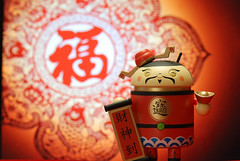
Photo by Yang and Yun on Flickr
China Simplified‘s blog has a great post on variations of Chinese New Year wishes, all in different regional dialects (AKA fangyan): Spring Festival wishes from around China.
The post has embedded audio for 15 different greetings, covering fangyan from places like Henan, Sichuan, Shandong, Guangdong, Guizhou, Tianjin, Zhejiang and other places.
If you’ve every enjoyed Phonemica, you’ll enjoy this (and it will bring a smile to your Chinese friends’ faces as well).
Happy Chinese New Year! (It’s still 6 days away…)
10
Feb 2015Very Google Translate
These days it’s not uncommon for an English word to get thrown into a Chinese sentence, sometimes with a disregard for the original part of speech. A typical example is “很fashion” (“very fashion,” meaning, “very fashionable“).
One of things things we sometimes do with AllSet Learning clients is give them translation exercises where they have some English sentences, and they have to translate them into Chinese. We make sure that the sentences are practical and not random, so the exercise can be quite fruitful.
Occasionally, though, unwanted technology creeps into the “learning process,” and the teacher notices. This was a comment from one of our teachers on a client’s translation exercises:
> 有几句非常google translate。
“There were a few sentences that were very Google Translate.” Well said.
04
Feb 2015My Chinese Classroom vs. Our Chinese Classroom
The Chinese textbook My Chinese Classroom has been around since at least 2005; I once reviewed it on this site, in fact. I was amused, then, to see a new textbook, Our Chinese Classroom (《我们的汉语教室》) on the shelf of a local book store, right next to My Chinese Classroom (《我的汉语教室》).
Upon closer inspection, the main editor is the same (徐文静), but the publishers are different.
I’m curious: is this the next generation of the series, with a rather unimaginative title evolution, or is this a new project for a new publisher that blatantly rips off the old one?
I didn’t have time to check this out today, but I will examine later. (If anyone knows the inside scoop, let me know!)
27
Jan 2015Kaiser’s “Dude System” of Tones
Let’s face it, learning the tones of Mandarin Chinese is a challenging endeavor, and the stereotypical “mā má mǎ mà” example isn’t super helpful. Of all the alternate systems to help learners develop a feeling for the tones, my favorite is the “dude system,” originally developed by Kaiser Kuo for The Beijinger. He recently reposted it in Quora, and I’ve gotten his permission to share it here (with a little audio addition of my own):
The Dude System:
1. First Tone: Dūde, the disapproving tone, as to the clumsy roommate who’s just knocked over your three-foot Graphix and gotten bong water all over your Poli Sci 142 reader: “Dude, I can’t believe you spilled my bong again!”
2. Second Tone: Dúde?, in the concerned but creeped-out way you might address the roommate you discover sitting naked and cross-legged in the dark, chanting “Nam-myoho-renge-kyo” and sounding a little brass bell.
3. Third Tone: Duǔde, scornfully, as if your roommate has asked to borrow 50 dollars so his sensei can align his chakras: “Yeah right, dude.”
4. Fourth Tone: Dùde!, as if you are exclaiming in triumph to your roommate when coming home from class having gotten a date with mega-babe Elena from your macroeconomics class.
In case you don’t get it and need to hear it, here’s an MP3 I made: dude1234.mp3. (It adheres more to Kaiser’s descriptions above than to the exact Chinese pronunciation.)
[Originally posted on Quora.]15
Jan 2015Practicing Chinese Tone Changes
Wow, looks like I started off the year with a two-week blogging break! I’m not finished blogging, by any means, but I’ve been busy finishing off AllSet Learning’s new products, dealing with a sick household, and preparing for a new baby (due next week!).
The AllSet Learning Store now has 8 downloadable products, and the latest 3 products are entirely related to tone changes. Tone change rules (referred to in linguistics as “tone sandhi,” or 变调规则 in Chinese pedagogy) are an important concept for learners to master, but you’re never ready for it right after you just learned pinyin and the four tones. Tone change rules need to be addressed sometime in the “elementary” period, and when exactly the learner is ready is going to vary a bit from person to person. You know a learner is ready when she starts truly acquiring individual tones and noticing on her own that what Chinese people say doesn’t always match the tones on the pinyin.
Unfortunately, textbooks tend to force learners to memorize these rules too early, before learners really have a strong concept of the tones in the first place. To give a specific example: New Practical Chinese Reader 1, Lesson 1 covers the sounds of pinyin (pp. 5-6), followed immediately by the four tones (p. 6), followed immediately by “third tone sandhi” (p. 7). Yikes!
Mastering Chinese tones is a long-term endeavor, which starts with learning what the four tones sound like and how to produce them. This foundation is essential before moving on to tone changes. Even after learning all the rules as an elementary learner, it’s going to take quite some time to be able to consistently apply those tone change rules in whole sentences, so most intermediate learners will benefit from more challenging tone change exercises.
With all this in mind, AllSet Learning has created the exercises that learners need at various stages. Our new products are:
– A2 Tone Changes
– B1 Tone Changes
– B1 Tone Changes for Third Tones
Feel free to ask questions about the products. Our versioning system makes it easy to update the products and add features.
I’ll be addressing some of the complexities of tone changes in future posts.
31
Dec 2014“Open” IP in China
An interesting article hit Hacker News the other day, relating to the Chinese model for innovation among hardware startups: From Gongkai to Open Source. The article uses the Chinese words gongkai (公开), meaning “open,” and kaiyuan (开源), meaning “open source.”
Here’s how it starts:

Photo by Ars Electronica on Flickr
> About a year and a half ago, I wrote about a $12 “Gongkai” cell phone… that I stumbled across in the markets of Shenzhen, China. My most striking impression was that Chinese entrepreneurs had relatively unfettered access to cutting-edge technology, enabling start-ups to innovate while bootstrapping. Meanwhile, Western entrepreneurs often find themselves trapped in a spiderweb of IP frameworks, spending more money on lawyers than on tooling. Further investigation taught me that the Chinese have a parallel system of traditions and ethics around sharing IP, which lead me to coin the term “gongkai”. This is deliberately not the Chinese word for “Open Source”, because that word (kaiyuan) refers to openness in a Western-style IP framework, which this not. Gongkai is more a reference to the fact that copyrighted documents, sometimes labeled “confidential” and “proprietary”, are made known to the public and shared overtly, but not necessarily according to the letter of the law. However, this copying isn’t a one-way flow of value, as it would be in the case of copied movies or music. Rather, these documents are the knowledge base needed to build a phone using the copyright owner’s chips, and as such, this sharing of documents helps to promote the sales of their chips. There is ultimately, if you will, a quid-pro-quo between the copyright holders and the copiers.
> This fuzzy, gray relationship between companies and entrepreneurs is just one manifestation of a much broader cultural gap between the East and the West. The West has a “broadcast” view of IP and ownership: good ideas and innovation are credited to a clearly specified set of authors or inventors, and society pays them a royalty for their initiative and good works. China has a “network” view of IP and ownership: the far-sight necessary to create good ideas and innovations is attained by standing on the shoulders of others, and as such there is a network of people who trade these ideas as favors among each other. In a system with such a loose attitude toward IP, sharing with the network is necessary as tomorrow it could be your friend standing on your shoulders, and you’ll be looking to them for favors. This is unlike the West, where rule of law enables IP to be amassed over a long period of time, creating impenetrable monopoly positions. It’s good for the guys on top, but tough for the upstarts.
Very interesting stuff. Read the whole article on bunniestudios.com.
29
Dec 2014Kaiser on North Korea and China
Kaiser Kuo answered a question on the relationship between China and Korea which included an analogy that was too good to pass up (I love a good analogy):
Question:
> What impression does the average Chinese person have of North Korea?
> Is it similar to the rest of the world or do they have a different view considering the relation of their government with North Korea?

Photo by ~~Yuna~~ on Flickr
Kaiser’s Answer:
> I’m not sure about the “average” Chinese person, but nearly all the Chinese people I know feel a range of emotions toward North Korea that would include embarrassment, shame, pity, contempt, and outright hostility. It’s like a nasty dog that was already a family pet long before you were born: once upon a time, it wasn’t so crazy and bitey, and actually helped scare off would-be burglars and you were even kind of proud of what a tough little sonofabitch he was. Now he’s always barking, straining at the leash, trying to bite the neighbors (and ruining your relations with them), shitting all over the place, and costing you too much to feed.
See the question for the full answer (all two paragraphs of it).
Update: Kaiser’s response on Twitter:
@sinosplice Ha! Glad you liked that. A couple more containing extended metaphors: http://t.co/woPOZGs10t and http://t.co/2zey7vePwI
— Kaiser Kuo (@KaiserKuo) December 29, 2014

